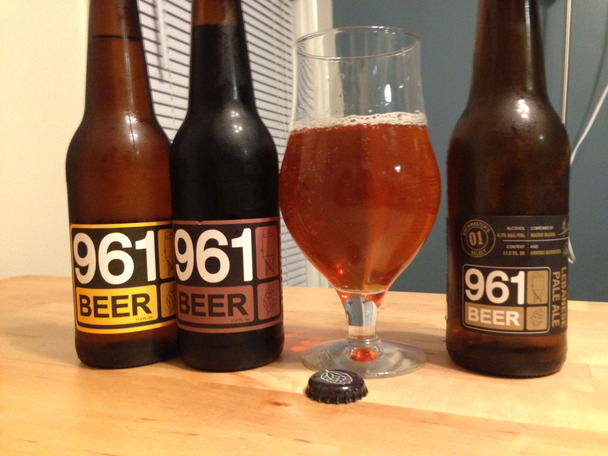
No two brewers are alike. It sounds like the beginning of a bad joke, but the three brewers who wandered into my life last week were an MIT fermentation scientist (Mystic's Bryan Greenhagen), the founder of American craft brewing (Boston Beer's Jim Koch), and a former investment banker turned airline mogul who started the first microbrewery in the Middle East (Mazen Hajjar of 961 Beer).
It's doubtful any other career path would unite these three, but I found myself having similar conversations with each brewer as I plotted out stories for the week and reflected on larger truths in the way that only a couple of beers can inspire. Extreme beer was a major topic with two of the brewers; all three agreed that they prefer to brew the kinds of beer they like to drink themselves. And there's serious industrious talent and business chops in anyone crazy enough to start their own brewery.
Hajjar, founder of 961 Beer, made his way to the Globe's offices on Morrissey Boulevard last week to introduce his product. He had just come from Brooklyn, land of skinny cans and jeans, where he wasn't pleased that a toasted brown ale he had tried had been so hoppy. Sporting a full beard, Hajjar suggested we open up a few bottles of his beer in the Globe lobby. As much as I wanted to, company policy forbade it, and Hajjar was forced to speak for his beer without putting it on display.
Convincing me was a minor obstacle for Hajjar, who has convinced the entire country of Lebanon to drink craft beer for the first time. Named after the country's telephone code, 961 Beer launched during the dark days of the July 2006 siege on Lebanon. At that time, there were five beers available in the country, with a Heineken-style macrobrew being the most successful. Lebanese food is renowned for quality, but Hajjar was the first in the country to brew a beer to match. He describes the initial process of converting beer drinkers to 961 Beer drinkers as a "battle of one-to-one".
"I'd get weird knocks on the door at 10 p.m.," said Hajjar. "I felt like a drug dealer."
Today, 961 Beer sells over 200,000 cases per year, outselling Corona in Lebanon. Available in Europe for some time, the beers are now available in the United States.
961 currently brews three beers, the most interesting of which is the Lebanese Pale Ale. Beer was invented in the area of the world that is modern-day Lebanon around 9000 BC. As a tribute, Hajjar decided to brew a beer that pays homage to his home country. Instead of looking backward, however, Hajjar brews his pale ale with thyme, sumac, chamomile, sage, anise, and mint as a tribute to his modern-day country.
Poured into a tulip glass, Lebanese Pale Ale appears burnt orange with very little head. I smell the thyme, anise, and mint.
Spice is everywhere in this beer, which is like nothing I've had before. I'd like to write that it transports me to some exotic marketplace, but that would be doing both you and the beer a disservice. It's better to consider this one as another stop in your overall craft beer journey than to associate it too much with another country.
A couple of tasting notes: This is not a pale ale in the traditional sense. It's not a spicy IPA or any iteration, but rather a balanced spice or fruit beer. The mouthfeel is light to medium-light. On a silken backbone the spices wash over your tongue. I had to go to my spice rack to be sure I was parsing the flavors correctly, but sage, thyme, and anise all figure prominently. As the beer warms I get more thyme (confirmed by the trip to the spice rack), and the spices melt away instead of lingering around to produce any unpleasant aftertastes. The beer weighs in at 6.3 percent ABV.
There's a Helles-style lager and English-style porter in the portfolio as well. I was more impressed with the porter. After seeing the dark color when Mazen introduced the beer in his home country, people would ask him, "Did something go wrong?" I found nothing wrong with the smoky, well-balanced porter.
961 will soon be adding a black IPA and an imperial stout. The beer is currently available in 12 states. You can find it locally at the Hawthorne and Eastern Standard in Boston, at Whole Foods in Dedham, Craft Beer Cellar in Belmont, and at several other outlets.